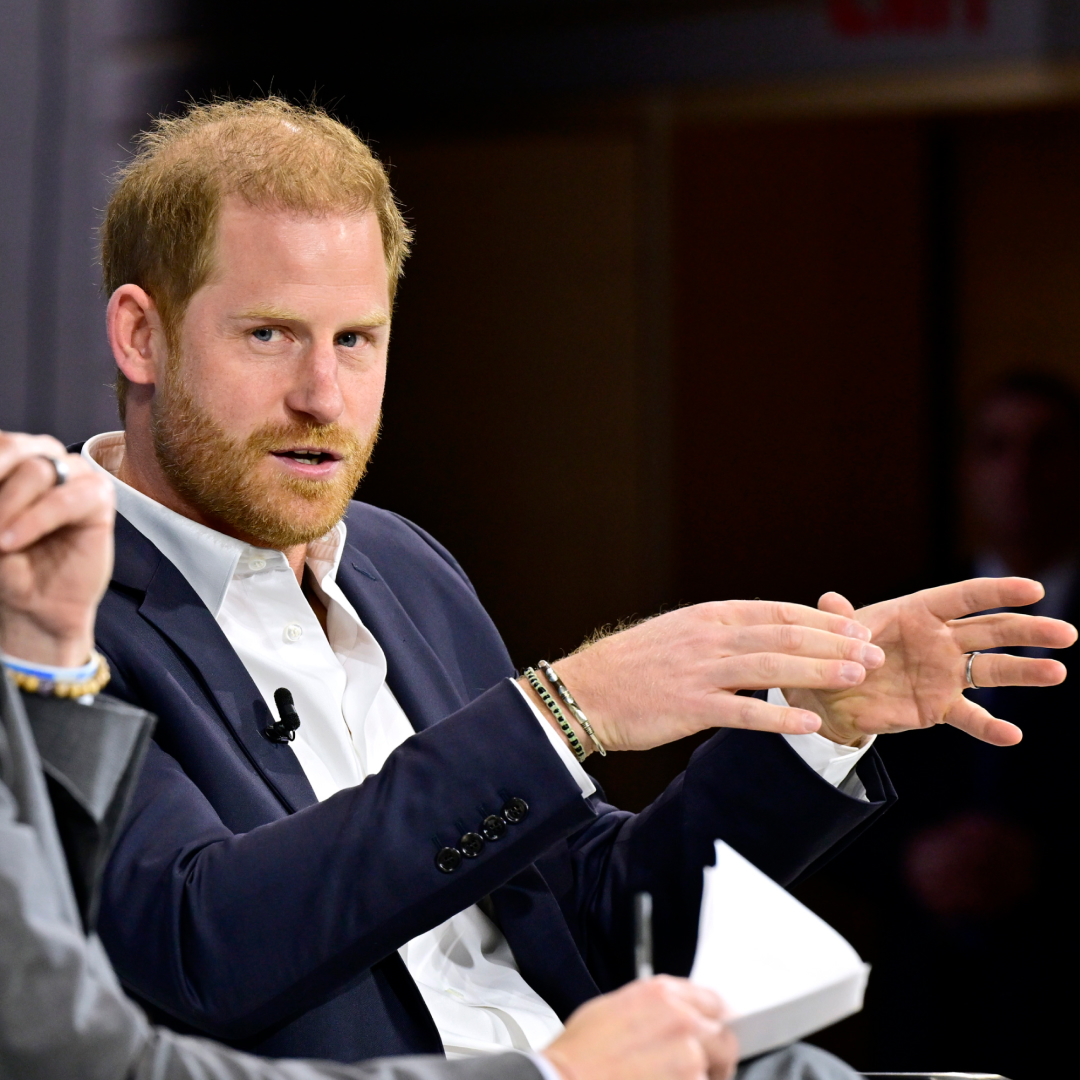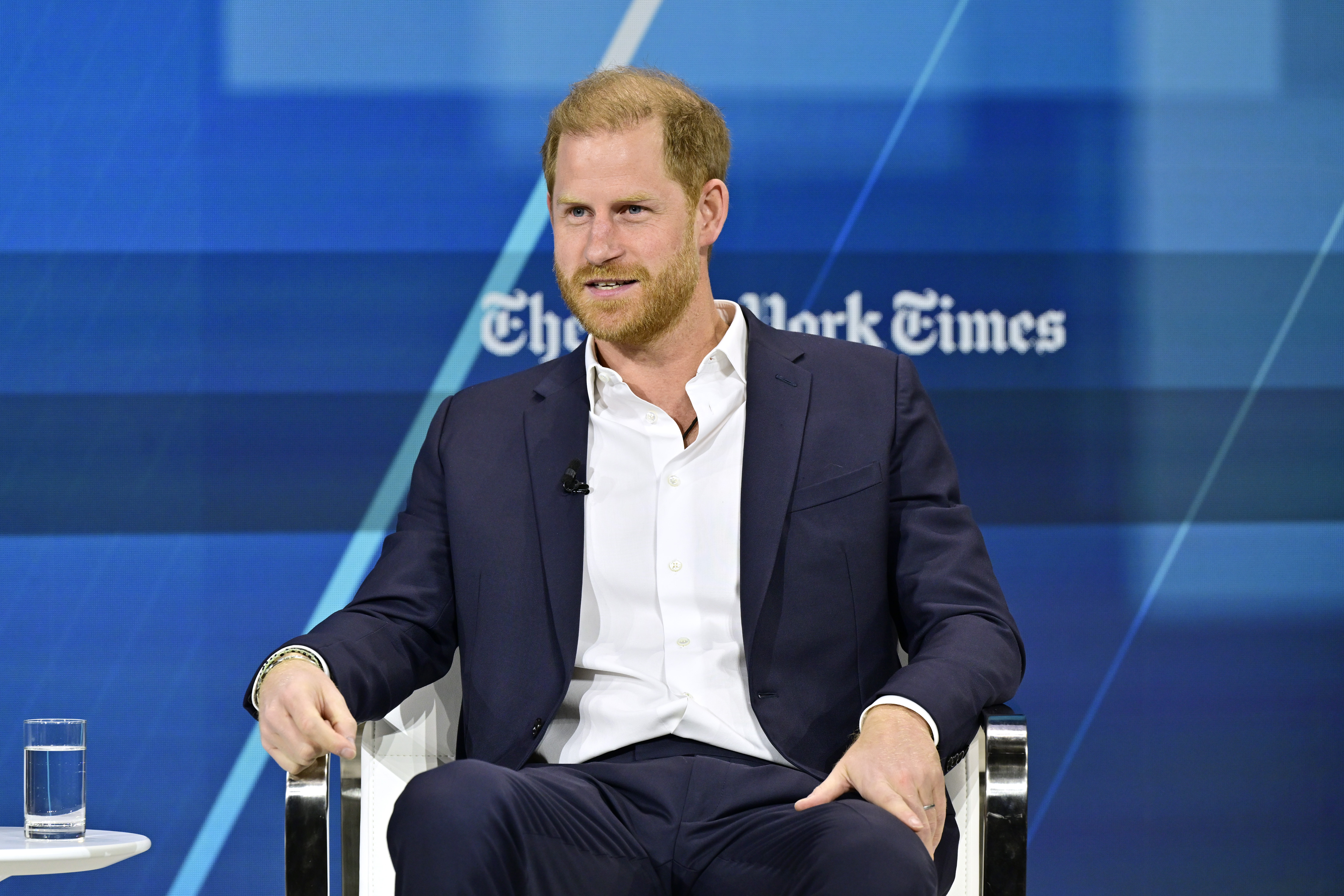
Prince Harry took part in a deeply personal conversation with New York Times journalist Andrew Ross Sorkin during the paper's DealBook Summit on Wednesday, Dec. 4—and while the Duke of Sussex didn't hold back on his thoughts about the media, he also shared some insights about therapy and his late mother, Princess Diana.
After stepping down as a senior member of the Royal Family in 2020, Prince Harry and wife Meghan Markle relocated to California, and Sorkin asked if the family planned to stay.
"I do," the Duke of Sussex said. "I very much enjoy living here and bringing my kids up here. I feel as though it’s the life my mum wanted for me."
Harry continued that he can do things with his kids that he couldn't back in the U.K. which is “huge” to them, adding he’s “hugely grateful” to live in Montecito.
After Sorkin's introduction—which pointed out that Prince Harry's life has been scrutinized by the press since he was born—the prince shared that he's been surrounded by a world of media inaccuracy for the past four decades.

"As you touched on there, I’ve had a lived experience since I was a kid. I’ve seen stories written about myself that aren't exactly based on reality," the Duke of Sussex said. "When you grow up in that environment, you do find yourself questioning the validity of the information, but also what other people are thinking about as well."
The prince told Sorkin—who referenced a passage from Harry's memoir, Spare—that growing up in a "bubble" impacted his mental health.
"When you're kind of trapped in this bubble you feel like there's no way out," he said, describing growing up in the Royal Family. The duke added, "What happened to my mum...there was clearly nothing I could do."

Harry also shared that one of his "biggest weaknesses is feeling helpless," explaining that with his mother's death and the press intrusion from the media, "it was something I knew that I couldn't fix and it was also a situation I knew that I couldn't get out of. "
He expressed feeling helpless that something could happen to himself, his future wife or children, just like it did to Diana, who was killed in a paparazzi chase in 1997.
The duke also got personal about therapy, sharing that it was "a blessing," and “has helped me massively." After seeing a therapist, Harry admitetd that “to a certain degree” he has “made peace with some of the past.”
At the end of the day, the Duke of Sussex told Sorkin that he didn't want to narrow down what his life in 30 years would look like, but his goal for the present was simple. "The main goal for me at the moment is being the best husband and the best dad I can be," he concluded.






